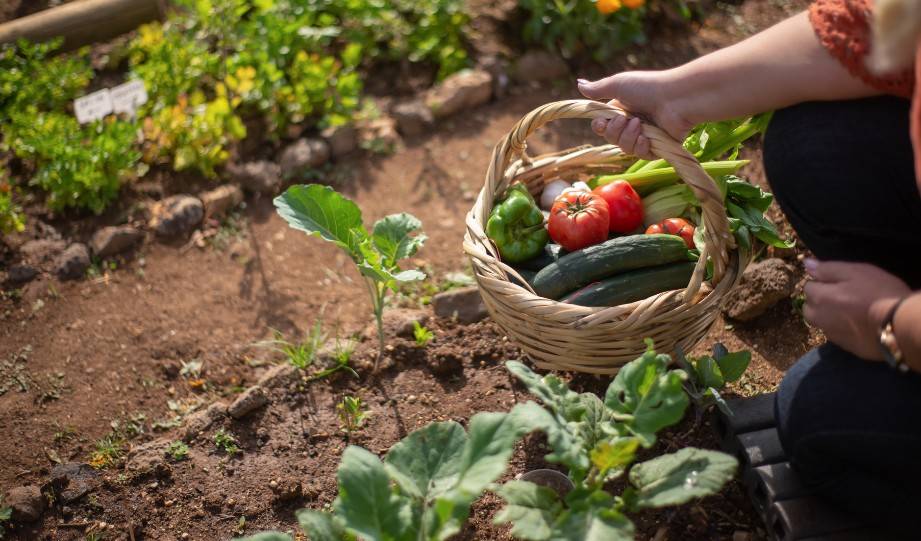Going green has numerous benefits. With many industries looking for better and affordable ways to lower their carbon footprint, I believe it’s about time for you to play your part and turn your backyard into an eco-friendly garden.
After all, owning a self-sufficient garden can be an excellent investment for your entire family this spring. An autonomous garden can help you become environmentally active and save you cash in the long run.
So, why don’t you start by growing a self-sufficient garden full of herbs, vegetables, and fruits in your patios, backyard as well as indoors? Plus, with a self-sustaining garden, you can save time and feed your family highly fresh, nutritious, and chemical-free veggies.
So, here are seven great reasons why you should create your self-sufficient garden this spring.
1. A Self-Sufficient Garden Is Better for the Environment
Long-distance transportation of the grocery store’s fruits and veggies relies on fossil fuel. Therefore by growing your food, you will be reducing reliance on this form of transportation that is bad for our environment.
With self-sufficient farming, you will not be using pesticides and chemicals that are quite harmful to the environment, says Eco Peanut.
2. A Self-Sufficient Garden Can Save You Time and Money in the Future
Even though the initial investment can be a bit high, a self-sufficient garden can save you some money and time in the future. Even with a small garden, you can save a lot since you will be farming what you need, says Your Energy Blog.
And this will save you the cash that you might have otherwise spent going to the market every weekend.
Unlike traditional farming, a self-sufficient garden doesn’t need pesticides, fertilizer, or new seeds every season. Therefore, it’s more economical than the conventional way of farming.
3. You Don’t Need a Huge Farm To Create Your Self-Sufficient Garden
When creating a self-sufficient garden, you don’t require a big backyard. You can start by planting some vegetables in some pots on your patio or start a small nursery for your herbs and then increase the size as your herbs grow.
And with a little creativity, you can convert your small backyard into a reliable farm that can feed your family for several seasons.
4. You Will Get To Enjoy Fresh Veggies and Fruits That Have Been Planted With No Chemicals or Pesticides
Since you are totally in charge of your garden’s growing environment, there’s no need for pesticides and chemicals in the garden. Besides, there are various organic solutions to curb pests and diseases for plants.
And if your crops go bad, you can simply chalk them out and plant another crop that will thrive in its stead.
With a self-sufficient farm, you will be guaranteed chemical-free produce every day. Therefore, your entire family will stay healthy the entire summer.
Plus, you have a very low likelihood of getting food-borne outbreaks such as Listeria, E. Coli, and Salmonella on your vegetables and fruits. There’s also a smaller chance of you consuming contaminated foods.

Read More:
5. Gardening Is a Great Way To Stay Active the Entire Spring
After staying indoors the entire winter, I am sure you are ready to go outside and have fun, and gardening is one of the best outdoor activities that have been proven to promote physical health.
Preparing your self-sufficient garden can improve your immune system and cardiac health, decrease stress and heart rate, and improve your body strength and flexibility.
After all, working in your garden for a few hours can be a great workout that will boost your energy levels and leave you physically fit. Several gardening activities like weeding, planting, and digging are great low-impact forms of exercises for you.
Unless you are planting your plants indoors, gardening will occasionally let you out in the sunshine and fresh air. Therefore, you will receive the needed vitamins that can help you maintain healthy bones and teeth.

Read More:
6. Boosts Your Household’s Food Security
According to the World Health Organization, the only way one can achieve food security is to have easy access to nutritious, safe, and sufficient food. And by creating your own self-sufficient garden, you will be contributing to the food security in your home.
Plus, most of these homegrown foods are directly harvested and prepared daily for your family. So, you will need to learn better ways to store the extra fresh food in your house.
7. You Will Consume In-Season and Fresh Veggies and Fruits
By growing your food and tending to them yourself, you will eventually know when the nutrients and flavors are at their peak.
After all, fruits grown in eco-friendly gardens tend to be quite delicious. And that is because they were grown naturally with no pesticides or chemicals.
So you should be ready to consume as much as you like. And to make sure nothing goes to waste, you should be ready to try new and creative recipes.
Remember, fruits that naturally ripen in your garden can be eaten in a matter of days. And they possess a lot of nutrients compared to vegetables and fruits that are purchased in grocery stores.
After all, grocery store products are usually picked very early, then shipped to various warehouses and later distributed to these stores. They then stay there until you purchase them, and their nutritional value declines over time.
Final Thoughts
Despite being a bit expensive to start, a self-sufficient garden has more than enough health, environmental and nutritional benefits.
Going green can help you lower your carbon footprint and also improve your environment. And with highly nutritious fruits and vegetables in your backyard, you will never have to worry about lacking food.
Remember, you will be growing indigenous plants that thrive in your area; therefore, you will never have to worry about your plants being destroyed by the sun or lack of rain.
So, instead of staying indoors this spring, why don’t you convert your backyard into a self-sufficient garden?


